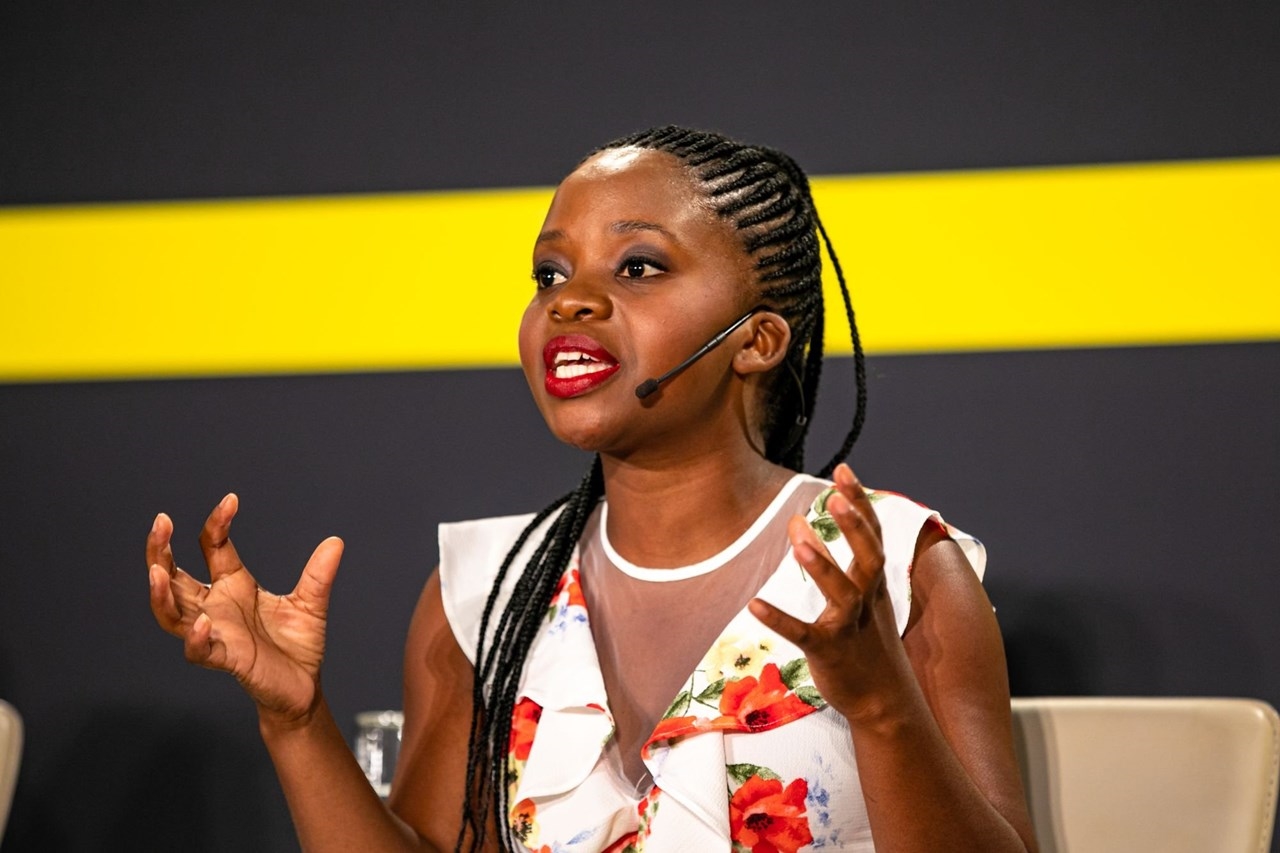Memory Banda, a renowned activist from Malawi, has become a powerful advocate for girls' rights, particularly in the fight against child marriage. Growing up in one of the world’s poorest countries, where 1 in 2 girls were married before the age of 18, Banda's story is both personal and transformational. Her work as a youth advocate, public speaker, and social activist has had a profound impact, not only in Malawi but across the globe, in the movement toward gender equality and girls' empowerment.
Banda was bornon September 24, 1996 in Mzimba District and grew up in Chiradzulu District. Her father died when she was four years old, and she was raised by her mother. Despite growing in a singled-headed family, Memory defied the odds of early marriage in her community. Her sister Mercy was forced to marry at the age of 11 after she became pregnant during an initiation ceremony.
Despite facing cultural pressure to follow the same path as her sister and many girls around her, Memory was able to avoid child marriage. She credits her education, resilience, and the support of her family for empowering her to resist the societal norms that so often trap girls in cycles of poverty and abuse. This personal experience became a catalyst for her activism, motivating her to work tirelessly to challenge the traditional beliefs that promote child marriage.
Said Banda: "My little sister had to go to an initiation camp. When you start your menstruation, you have to go there to learn more about growing up about the traditions. And on a specific day the community hires a man who goes to the camp and rapes the girls. It’s the traditional rite of passage into womanhood. And, they are 11 or 12. When she came back from there, my little sister got pregnant and was forced to marry the person who had impregnated her. That is when I realized it is not a normal thing. It does not need to happen to me. And I understand that no one will speak for us."
Banda began her advocacy work at a young age, joining local youth organizations focused on girls’ education and rights. However, her efforts took on a national and international dimension when she became involved in campaigns aimed at ending child marriage. She has been a leading figure in advocating for policy changes in Malawi, where early marriage was once legally permissible.
 Memory BandaTED TalkIn 2015, Banda played a key role in the passage of a landmark piece of legislation in Malawi that raised the minimum legal age for marriage from 15 to 18. This victory was a significant milestone in the fight against child marriage in the country, and Banda’s contributions were instrumental. The law was widely praised by international organizations and human rights groups, marking a turning point in Malawi's approach to protecting the rights of girls.
Memory BandaTED TalkIn 2015, Banda played a key role in the passage of a landmark piece of legislation in Malawi that raised the minimum legal age for marriage from 15 to 18. This victory was a significant milestone in the fight against child marriage in the country, and Banda’s contributions were instrumental. The law was widely praised by international organizations and human rights groups, marking a turning point in Malawi's approach to protecting the rights of girls.
Banda has worked directly with girls and communities to provide education, raise awareness about the dangers of early marriage, and shift cultural attitudes that perpetuate gender inequality. Said Banda: "Most often, young people, we undermine ourselves, we undermine our abilities. But I have learned, that’s it’s really young people that can change the world and at the same time changing our communities. For my example, it’s actually young people, who pushed from the community level, and then carried the messages to the national level, and then saw all the massive changes, that are happening is Malawi… It’s actually young people driving the change."
Banda’s efforts have resonated far beyond Malawi. Her voice has become prominent in global forums, including the United Nations, where she has spoken on numerous occasions about the urgent need to protect girls’ rights. Her speeches at the UN and other international platforms have brought attention to the human rights violations girls face in many parts of the world, inspiring action from governments, NGOs, and fellow activists.
Her work has earned her international recognition and awards, including being named a Global Youth Ambassador for A World at School and a leader in Girls Not Brides, a global partnership to end child marriage.
Despite her successes, Banda’s journey has not been without challenges. The deep-rooted cultural norms that support child marriage are difficult to change, and Banda has faced resistance in her own community and beyond. Addressing poverty, lack of education, and entrenched gender roles requires sustained effort, but Banda remains undeterred.
In her ongoing work, Banda emphasizes the importance of education and community engagement. She believes that real change must come from within the communities themselves, with leaders, parents, and young people all playing a role in shifting mindsets. Memory Banda’s approach is comprehensive, focusing on education as the key to breaking the cycle of child marriage and poverty.
Watch Memory's Ted Talk here:
Page created on 9/17/2024 12:11:49 PM
Last edited 9/18/2024 11:44:46 AM
